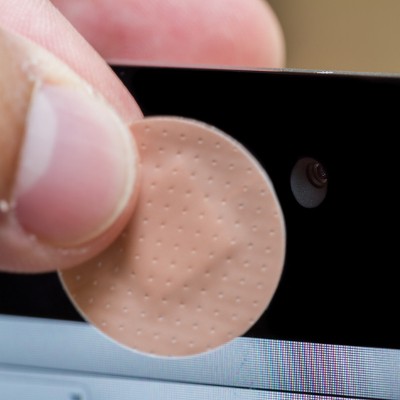Did you know that many webcams are infested with RATs? Not unlike their furry counterparts, RATs (or Remote Access Tools) are a nuisance that can cross the line into hazardous. This form of software allows a non-user to spy on a computer, giving them the ability to steal information or even record you and your environment with a PC’s webcam.
RATs are used to spy on people in all contexts, residing in a legal area as grey as their namesake’s fur. While IT professionals use remote tools to offer tech support and service, they are also used in many cybercrimes. Even school districts have gathered photos of students at home, through laptops distributed with a “tracking system” that snaps an image of the computer’s surroundings. Stalkers and blackmailers also gather photos and information about computer owners by activating the computer’s webcam without their knowledge.
While this threat may strike anyone who owns an electronic device, legal protections and repercussions are lacking as of yet. Unfortunately, outdated laws and far-too-specific requirements for litigation limit the actions a victim of intrusion may take even further.
Largely immune from legal recourse, hackers will then take the information they have gathered and twist it to their own personal desires. Webcam footage is used to blackmail and extort money from the victim, or is just illegally posted online for embarrassment or personal financial gain. Personal information allows hackers to commit identity theft, destroying credit scores and reputations on a whim.
How do you stop such invasions of your privacy?
Besides just taping up your webcam, there are a few practices to follow to protect the security of your device:
- Keep your security software fully updated always helps to keep malware at bay.
- Make sure that the latest firewalls and antivirus software are all installed.
- Use a secure Wi-Fi connection to do your browsing online.
Another strategy is to keep an eye out for warning signs of trouble, such as suspicious emails possibly containing malware or the webcam indicator light coming on when the device is not in use by you, the user. To defend yourself even further, use strong, frequently-changing passwords and do routine file searches of your system to check for any suspect files.
Otherwise, you can always keep taping over the camera every time you aren’t using it, and hope that someone isn’t watching the screen from the other side.
If you want to have a better security system than a sticky strip of paper, call COMPANYNAME at PHONENUMBER. We’ll take a look at your system (with your permission, of course) and help you plug up the holes where RATs could get in.
